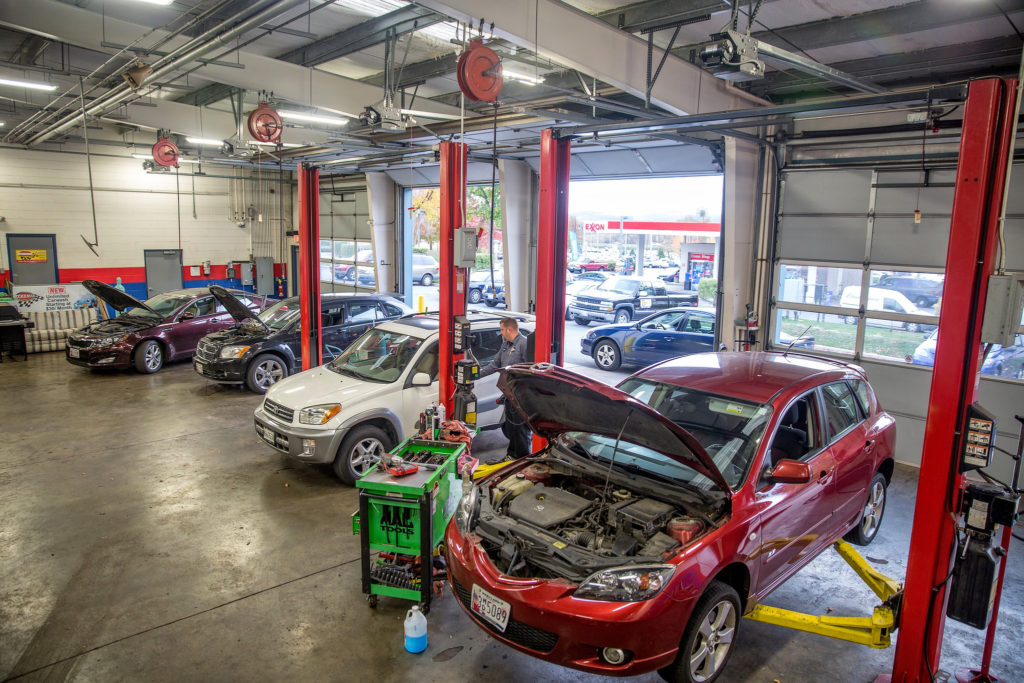All Categories
Featured
Your car is a vital part of your every day life, and taking good treatment of it makes sure that it serves you dependably for many years ahead. While modern automobiles are created to be long lasting, neglecting correct upkeep can lead to unnecessary breakdowns and expensive repair work. Below's just how you can keep your auto running longer and in peak problem.
- Abide By Regular Maintenance. The structure of a resilient cars and truck is routine maintenance. Follow your producer's advised upkeep routine, which can generally be located in your vehicle's proprietor's guidebook. Routine jobs like oil changes, tire rotations, and brake checks avoid wear and tear and keep your automobile performing ideally.
Ignoring oil modifications is among the quickest means to harm your engine. Clean oil guarantees proper lubrication and protects against getting too hot. Relying on your car and driving practices, oil changes are usually required every 3,000 to 5,000 miles or as defined by the manufacturer.
- Check and Replenish Fluids. Your vehicle relies upon numerous liquids to run smoothly. These include engine oil, transmission fluid, coolant, brake liquid, and power guiding liquid. Reduced or filthy fluids can cause engine getting too hot, slipping equipments, and brake failing.
Make it a routine to examine fluid levels consistently. If you observe a substantial drop in fluid degrees, it might show a leak that requires prompt focus. Keeping liquids clean and at the ideal degrees ensures your automobile runs efficiently and prevents pricey fixings.
- Watch on Your Tires. Tire upkeep is vital for both safety and efficiency. Incorrectly filled with air tires can lower gas efficiency, cause uneven wear, and boost the risk of blowouts. Check your tire stress monthly and ensure it matches the manufacturer's referrals.
Turning your tires every 5,000 to 7,500 miles promotes also wear and expands their lifespan. Furthermore, evaluate your tires for any indications of damages, such as cuts, bulges, or low step deepness, and replace them when essential.
- Replace Worn Components in a timely manner. Disregarding worn-out parts can bring about bigger problems down the roadway. For instance, stopping working to change a worn timing belt can lead to engine failure. Used brake pads can damage rotors, leading to costly repairs.
Be proactive regarding changing parts such as ignition system, filters, and belts as per the manufacturer's standards. Utilizing premium replacement parts guarantees much better performance and long life.
- Exercise Gentle Driving. The way you drive considerably affects the lifespan of your automobile. Aggressive driving habits, such as fast acceleration, unexpected stopping, and hard cornering, placed added tension on the engine, brakes, and tires.
Instead, embrace smooth driving strategies. Speed up progressively, preserve a steady rate, and brake gently whenever feasible. This minimizes wear and tear on your vehicle's parts and boosts fuel effectiveness.

- Secure Your Cars and truck's Outside. Keeping your cars and truck tidy isn't practically looks-- it has to do with preventing damages. Dust, road salt, and gunk can trigger corrosion and rust, particularly in the undercarriage. Normal washing, specifically during winter or after driving on salted roads, is essential.
Waxing your automobile every few months gives a protective layer versus ecological damages. In addition, park your cars and truck in a garage or utilize a car cover to shield it from severe climate and UV rays, which can discolor the paint and damages the interior.
- Do Not Overlook Indication. Dashboard caution lights are your automobile's way of informing you something needs interest. Whether it's the check engine light, low oil pressure, or tire pressure warning, attending to these notifies promptly can avoid small problems from ending up being significant repair services.
If you see unusual noises, resonances, or modifications in your automobile's performance, don't disregard them. An expert mechanic can diagnose and fix the problem before it rises.
- Store Your Car Correctly. If you're not utilizing your vehicle for an extensive period, proper storage space is essential. Keep your car in a great, completely dry place to safeguard it from climate damage. Make use of a battery tender to preserve the battery charge and include a gas stabilizer to stop the gas from weakening.

Starting the cars and truck occasionally or taking it for a brief drive can maintain all systems in working order and stop components from seizing up.
Conclusion: Consistency Is Trick. Maintaining your cars and truck running longer doesn't call for complicated procedures-- just uniformity and attention to detail. Routine maintenance, mild driving practices, and addressing problems quickly can make all the difference. Treat your vehicle with treatment, and it will certainly reward you with integrity, better performance, and years of trustworthy service. Remember, a properly maintained cars and truck isn't just a vehicle-- it's satisfaction on every journey.
Latest Posts
Recognizing Roofing Warranties: What Homeowners Must Know
Enjoy the Flavors of Yesterday's Tavern
Discover Top Vision Solutions in Panama City, FL – Eye Center South Specialists